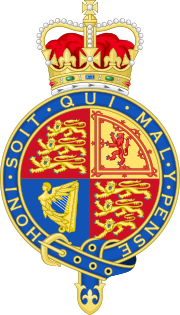Canadian federalism involves the current nature and historical development of the federal system in Canada.
The Implied Bill of Rights is a judicial theory in Canadian jurisprudence that recognizes that certain basic principles are underlying the Constitution of Canada.

George Howard Ferguson, PC was the ninth premier of Ontario, from 1923 to 1930. He was a Conservative member of the Legislative Assembly of Ontario from 1905 to 1930 who represented the eastern provincial riding of Grenville.

The Winnipeg Free Press is a daily broadsheet newspaper in Winnipeg, Manitoba, Canada. It provides coverage of local, provincial, national, and international news, as well as current events in sports, business, and entertainment and various consumer-oriented features, such as homes and automobiles appear on a weekly basis.
The court system of Canada forms the country's judiciary, formally known as "The King on the Bench", which interprets the law and is made up of many courts differing in levels of legal superiority and separated by jurisdiction. Some of the courts are federal in nature, while others are provincial or territorial.

The Province of Ontario is governed by a unicameral legislature, the Legislative Assembly of Ontario, which operates in the Westminster system of government. The political party that wins the largest number of seats in the legislature normally forms the government, and the party's leader becomes premier of the province, i.e., the head of the government.
Section 92(13) of the Constitution Act, 1867, also known as the property and civil rights power, grants the provincial legislatures of Canada the authority to legislate on:
13. Property and Civil Rights in the Province.

St Catharines Milling and Lumber Co v R was the leading case on Aboriginal title in Canada for more than 80 years. The Judicial Committee of the Privy Council, affirming a ruling by the Supreme Court of Canada, held that Aboriginal title over land was allowed only at the Crown's pleasure and could be taken away at any time. The case, involving Ojibway Treaty No. 3, which had never been previously litigated before any court, is a leading decision in Canada on the differences between the division of legislative powers and property rights under the Constitution of Canada.

Re Board of Commerce Act 1919 and the Combines and Fair Prices Act 1919, commonly known as the Board of Commerce case, is a Canadian constitutional decision of the Judicial Committee of the Privy Council in which the "emergency doctrine" under the federal power of peace, order and good government was first created.
The Double aspect doctrine in Canadian constitutional law is one that allows for laws to be created by both provincial and federal governments in relation to the same subject matter. Typically, the federalist system assigns subject matters of legislation to a single head of power. However, certain matters have several dimensions to them, such that for one purpose the matter will fall to one head of power, while for another purpose, it will fall to the other. For example, highway traffic laws fall into the property and civil rights power of the province, but equally, can be a criminal offence which is in the criminal law power of the federal government.
R v Eastern Terminal Elevator Co is an early constitutional decision of the Supreme Court of Canada on the Constitution's Trade and Commerce power.

The Combines Investigation Act, 1923, was a Canadian Act of Parliament that regulated certain anti-competitive corporate business practices. It prohibited monopolies, misleading advertising, bid-rigging, price fixing, and other means of limiting competition.
Section 91(2) of the Constitution Act, 1867, also known as the trade and commerce power, grants the Parliament of Canada the authority to legislate on:
2. The Regulation of Trade and Commerce.

The Matrimonial Causes Act 1857 was an Act of the Parliament of the United Kingdom. The Act reformed the law on divorce, moving litigation from the jurisdiction of the ecclesiastical courts to the civil courts, establishing a model of marriage based on contract rather than sacrament and widening the availability of divorce beyond those who could afford to bring proceedings for annulment or to promote a private Bill. It was one of the Matrimonial Causes Acts 1857 to 1878.

Canada (AG) v Ontario (AG), also known as In re the Regulation and Control of Aeronautics in Canada and the Aeronautics Reference, is a decision of the Judicial Committee of the Privy Council on the interpretation of the Canadian Constitution. Lord Sankey decided in the case that the federal government has the authority to govern the subject of aeronautics, including licensing of pilots, aircraft, and commercial services and regulations for navigation and safety.

Abitibi Power and Paper Company Limited was a forest products business based in Montreal, Quebec, that was founded in 1914. The firm was a mainstay of the Canadian newsprint industry in the first half of the 20th century, and now forms part of Abitibi-Consolidated.

Nadan v R is a key ruling of the Judicial Committee of the Privy Council in determining the competence of the Parliament of Canada with respect to the restrictions laid out in the Colonial Laws Validity Act 1865, and whether it possessed extraterritorial jurisdiction.

Canada (AG) v Ontario (AG)[1937] UKPC 6, [1937] A.C. 326, also known as the Labour Conventions Reference, is a landmark decision of the Judicial Committee of the Privy Council concerning the distinct nature of federal and provincial jurisdiction in Canadian federalism.
Section 92(14) of the Constitution Act, 1867, also known as the administration of justice power, grants the provincial legislatures of Canada the authority to legislate on:
14. The Administration of Justice in the Province, including the Constitution, Maintenance, and Organization of Provincial Courts, both of Civil and of Criminal Jurisdiction, and including Procedure in Civil Matters in those Courts.








